London Risk Training Centre offers a comprehensive range of certifications and training programs, specifically Tier 1, Tier 2, and Tier 3, focused on “Health, Safety & Environmental Management.” These programs are meticulously designed by the experts at London Risk Training Centre Ltd., ensuring that participants gain the necessary skills and knowledge to excel in the field. The curriculum encompasses a wide array of topics tailored to meet the demands of different levels of expertise, making it suitable for both beginners and seasoned professionals. With a commitment to fostering a safe and environmentally conscious workplace, the courses empower individuals and organizations to implement effective health and safety practices. Enrolling in these programs not only enhances professional credentials but also contributes to creating a safer and more sustainable work environment
Level 1
Introductory Level

Workplace Ergonomics and Injury Prevention
SThis course introduces principles of ergonomics to reduce musculoskeletal injuries in the workplace. Participants learn about workstation design, posture improvement, lifting techniques, and ergonomic risk assessments. It is essential for office workers, manual laborers, and supervisors aiming to reduce strain-related incidents and improve workplace efficiency.

Noise and Vibration Risk Management
Focusing on the hazards associated with occupational noise and vibration, this course teaches the effects on health, measurement techniques, and control strategies. Participants will understand regulatory thresholds and the use of personal and engineering controls. It’s ideal for manufacturing, construction, and mining professionals
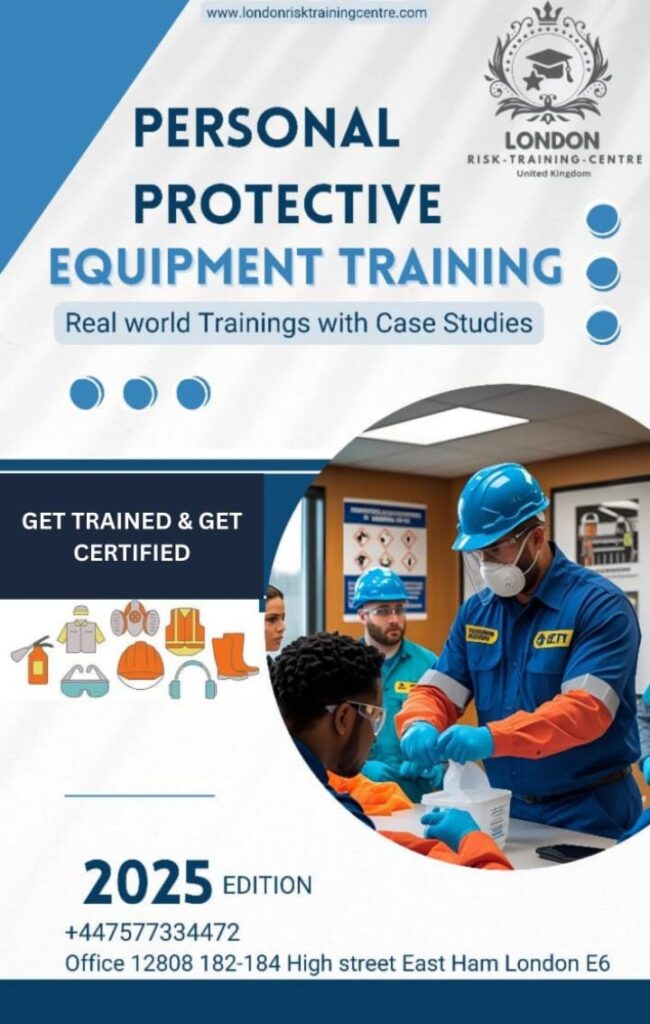
Personal Protective Equipment (PPE) Training
This practical course provides hands-on instruction on selecting, using, inspecting, and maintaining PPE. Topics include body, respiratory, eye, and hearing protection. Participants will learn how to comply with safety standards and workplace PPE protocols. Suitable for all personnel exposed to workplace hazard

Manual Handling Training
Participants are trained in safe manual handling techniques to prevent back injuries, strains, and musculoskeletal disorders. The course includes lifting, pushing, pulling, and carrying procedures, with a focus on biomechanics and risk minimization. It’s a must for logistics, warehouse, and industrial workers
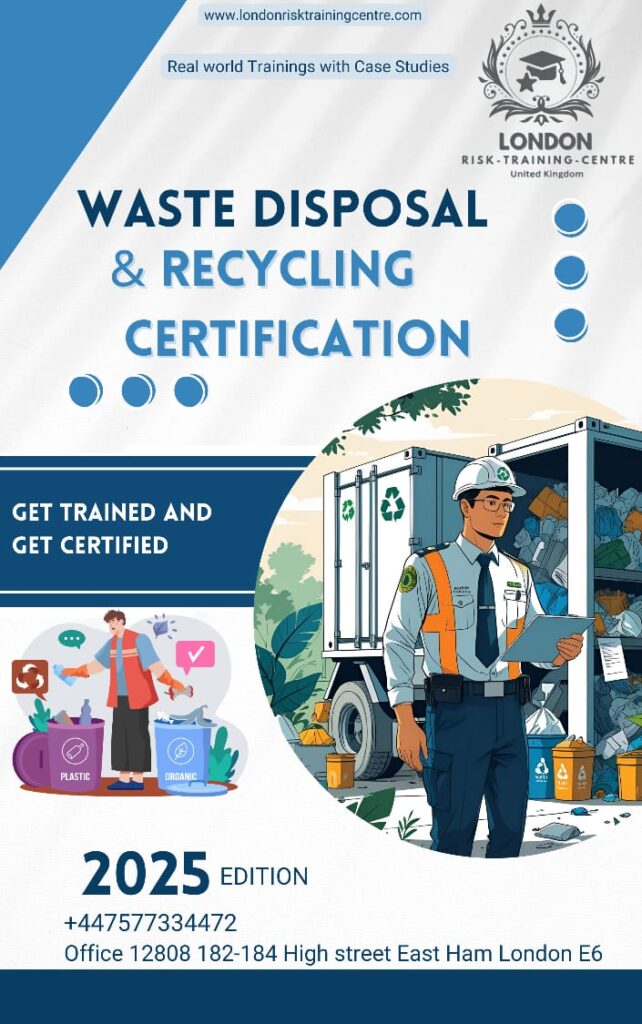
Waste Disposal and Recycling Certification
This course covers correct classification, handling, and disposal of solid and hazardous waste. Topics include recycling practices, regulatory requirements, and environmental impacts. Aimed at facility workers, custodians, and waste handlers, it ensures safe and responsible waste management practices.
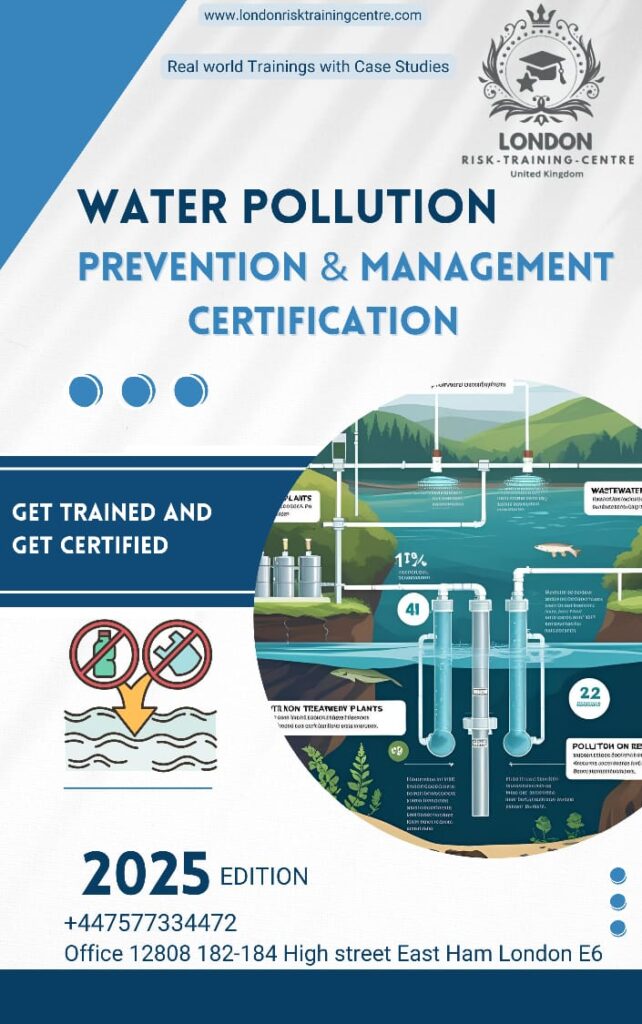
Water Pollution Prevention and Management Certification
This training provides an introduction to preventing contamination of water sources through proper drainage, waste discharge, and stormwater controls. Participants learn best practices for industries near aquatic environments. Ideal for environmental staff and operations personnel.
Level 2
Intermediate Level

Trench Safety and Excavation
Focused on preventing collapses and other trenching hazards, this course teaches soil analysis, protective systems (shoring, sloping, shielding), and emergency planning. It is suitable for civil engineers, construction crews, and utility workers
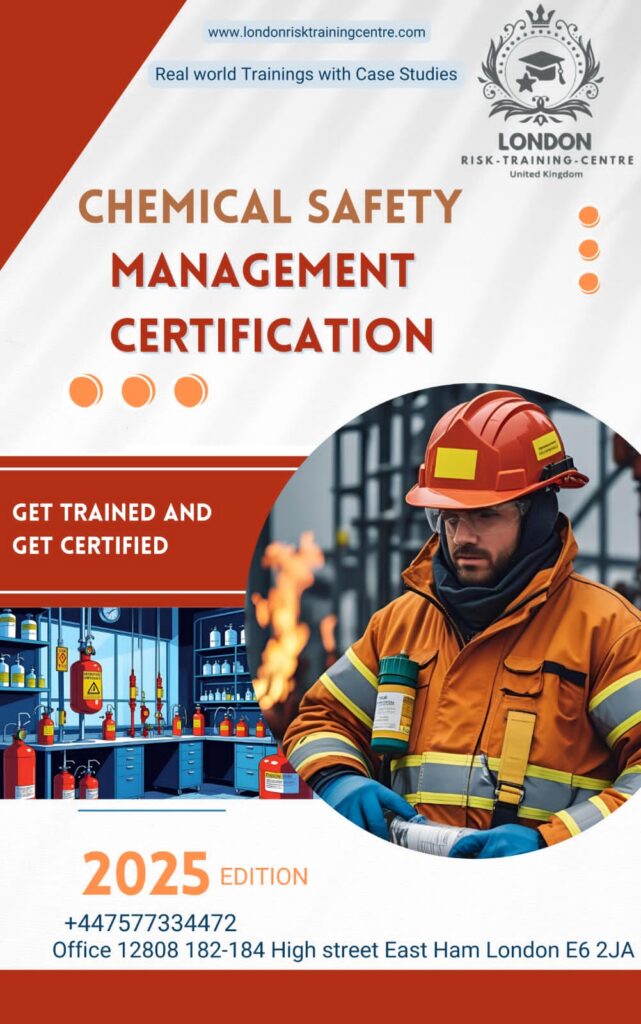
Chemical Safety Management
This course covers chemical identification, labeling (GHS), hazard communication, storage, and emergency handling. Participants will learn how to maintain chemical inventories and apply safety protocols. Ideal for laboratories, manufacturing, and chemical storage facilities
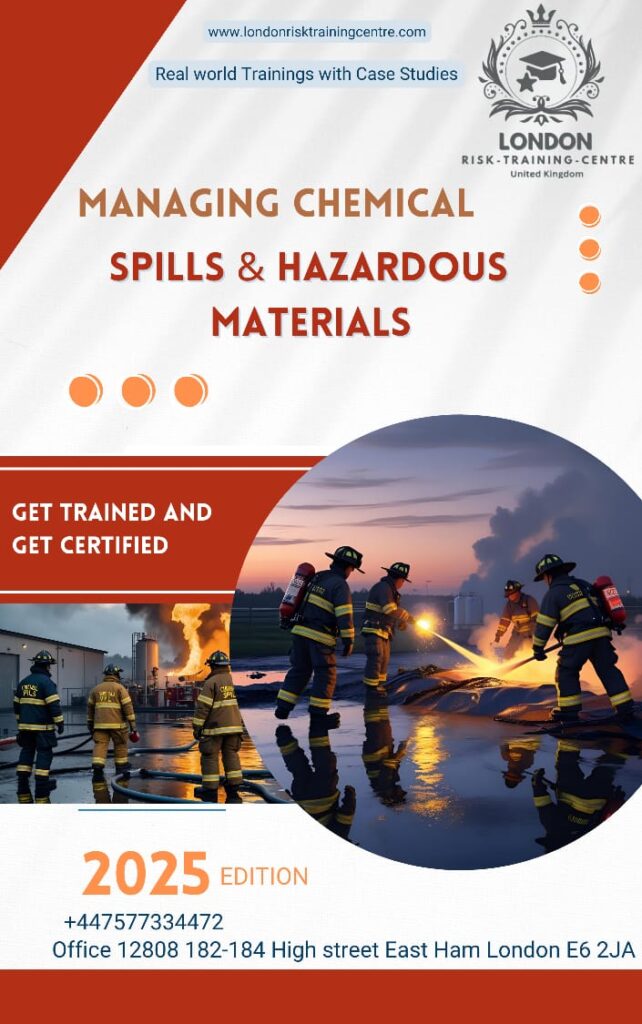
Managing Chemical Spills & Hazardous Materials
Participants will learn how to manage chemical spills, containment procedures, decontamination, and incident response planning. This course is essential for responders and safety officers in environments dealing with flammable, corrosive, or toxic materials

Confined Space Entry & Rescue
This course trains personnel to safely enter, monitor, and rescue from confined spaces using proper gas detection, ventilation, PPE, and rescue planning. A critical course for tank, vessel, and sewer maintenance teams

Fall Protection Training & Certification
This course provides essential knowledge on fall prevention and protection systems, including harness inspection, anchorage, and fall arrest systems. It complies with international fall safety standards and is crucial for workers at heights in construction, telecom, and industrial sectors.
Level 3
Advanced Level
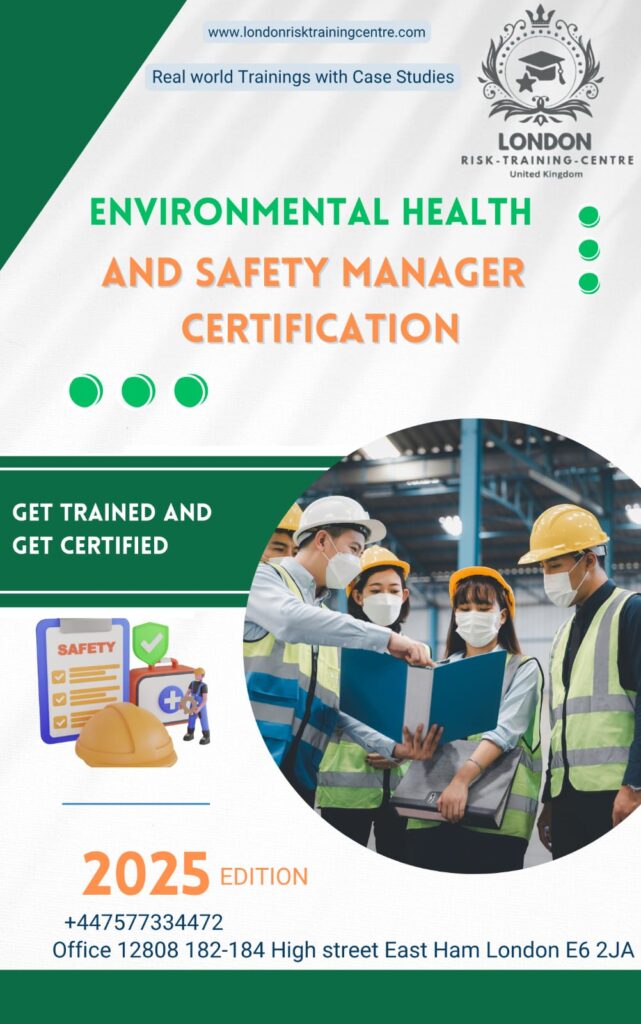
Environmental Health and Safety Manager
This course equips professionals to lead and manage organizational HSE programs across industries. It covers regulatory compliance, risk assessments, audits, and policy development. Participants learn to implement safety systems, investigate incidents, and promote a culture of continuous improvement. The training emphasizes strategic decision-making and environmental accountability. Ideal for senior safety officers and environmental managers, it bridges operational safety with leadership responsibilities. Graduates will be prepared to ensure robust, compliant, and proactive HSE management systems.
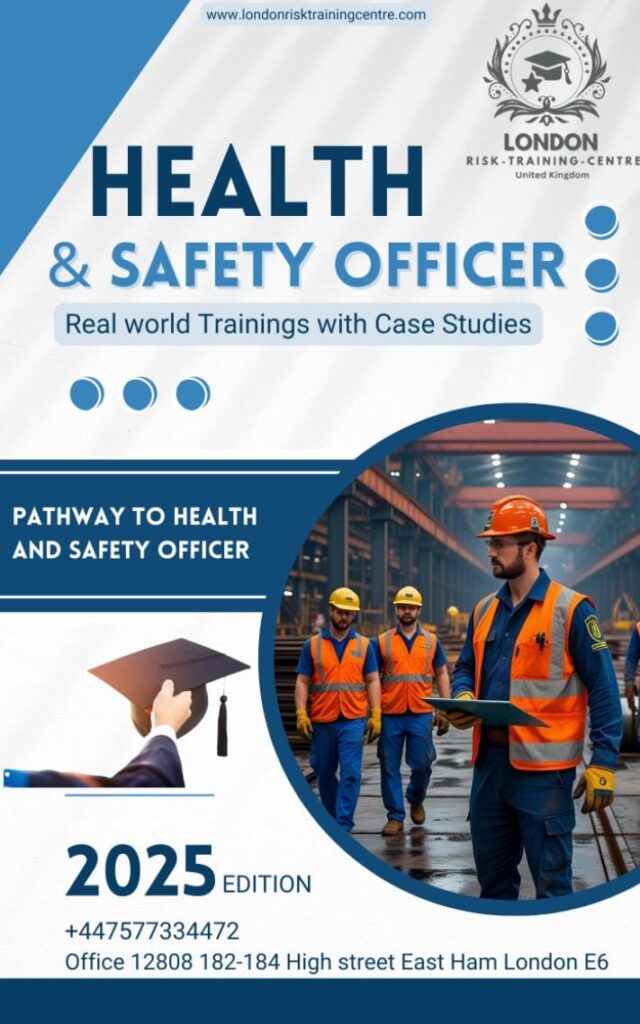
Health & Safety Officer
This comprehensive certification prepares individuals to take on the role of EHS Officer in industrial, commercial, and public sector environments. The course covers risk assessment, hazard identification, legal compliance, and the implementation of safety and environmental policies. Participants will gain skills in incident investigation, emergency response planning, environmental monitoring, and workplace inspections. The program emphasizes international standards such as ISO 14001 and ISO 45001. It is ideal for aspiring or current safety officers seeking to formalize their credentials. Graduates will be equipped to enforce workplace safety, minimize environmental risks, and promote a strong safety culture.
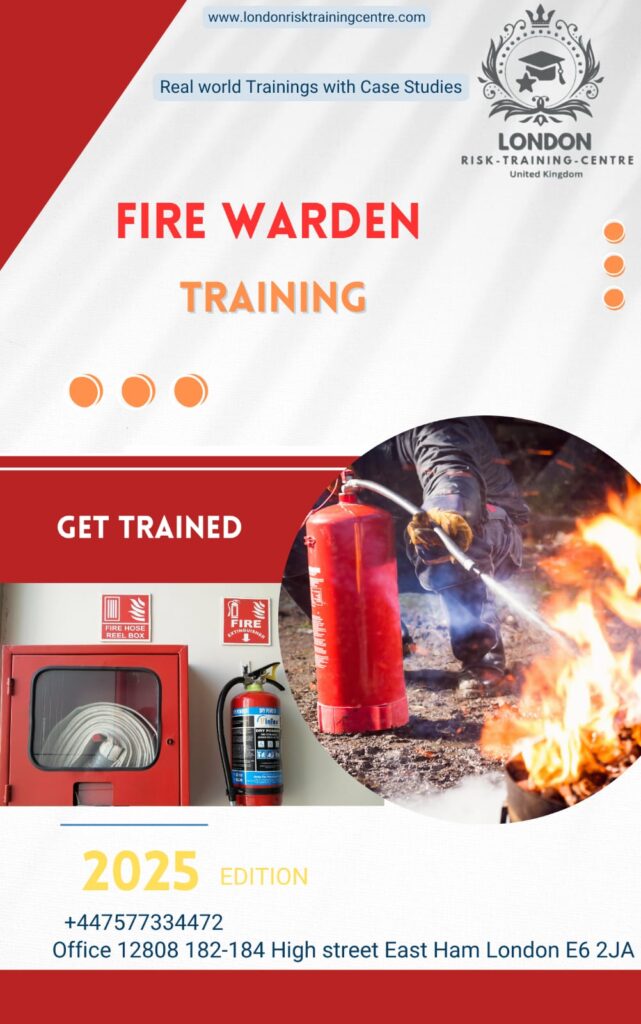
Fire Warden Training
This certification prepares workers to monitor high-risk hot work activities such as welding, grinding, or cutting. The course includes hazard identification, extinguisher readiness, and emergency activation protocols. It emphasizes permit-to-work procedures and vigilance during and after hot work tasks. Participants also learn to document observations and communicate effectively with supervisors. Essential in construction, shipyards, and plant shutdowns, it minimizes the risk of fire outbreaks. Trained fire watchers act as the first line of defense in fire prevention
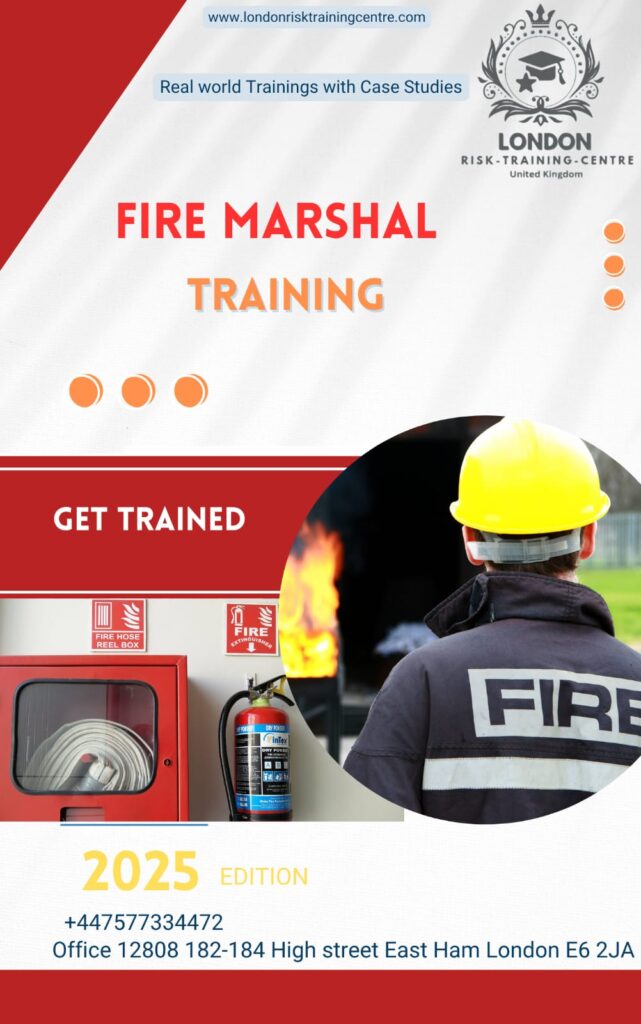
Fire Marshal Training
Aimed at those responsible for enforcing workplace fire safety, this course covers inspections, system checks, and staff coordination. Participants learn to conduct drills, investigate fire incidents, and maintain fire equipment. Legal responsibilities under fire codes and occupational safety regulations are covered in depth. The training equips fire marshals to act as fire safety leaders across operations. This is ideal for HSE managers, safety officers, and site supervisors. It ensures a comprehensive approach to fire risk mitigation
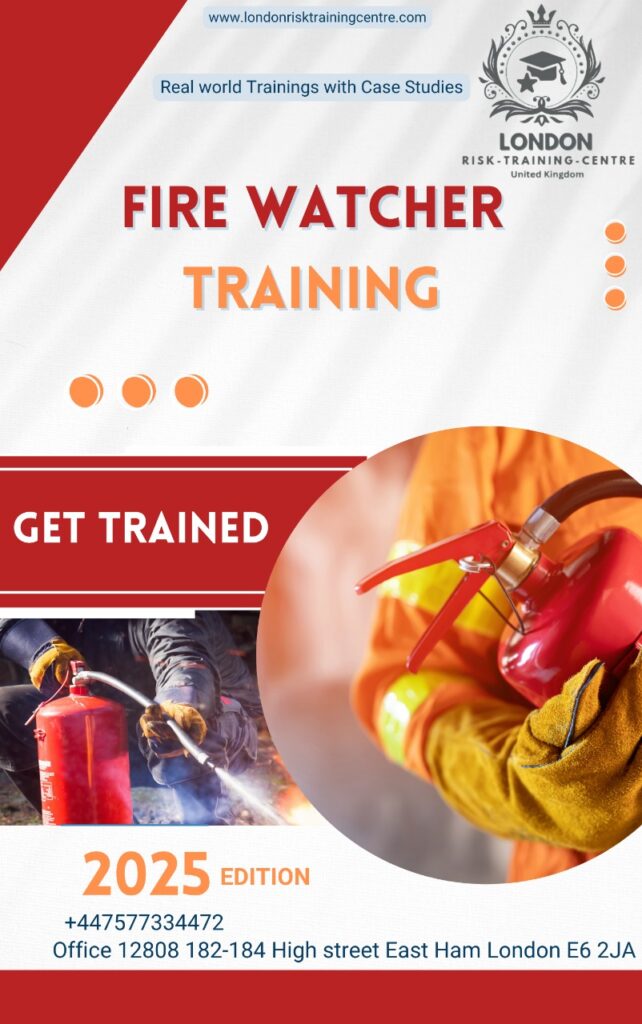
Fire Watcher Training
This certification prepares workers to monitor high-risk hot work activities such as welding, grinding, or cutting. The course includes hazard identification, extinguisher readiness, and emergency activation protocols. It emphasizes permit-to-work procedures and vigilance during and after hot work tasks. Participants also learn to document observations and communicate effectively with supervisors. Essential in construction, shipyards, and plant shutdowns, it minimizes the risk of fire outbreaks. Trained fire watchers act as the first line of defense in fire prevention

Carbon Footprint Management
This course provides the tools and techniques to calculate and reduce greenhouse gas emissions in organizations. It includes emission scopes, carbon audits, offsetting mechanisms, and GHG reporting frameworks like ISO 14064 and the GHG Protocol. Participants explore sustainability strategies, lifecycle assessments, and corporate reporting practices. Ideal for environmental professionals and corporate sustainability officers. The training supports climate goals and enhances environmental credibility. Graduates can lead climate action planning in compliance with global standards.
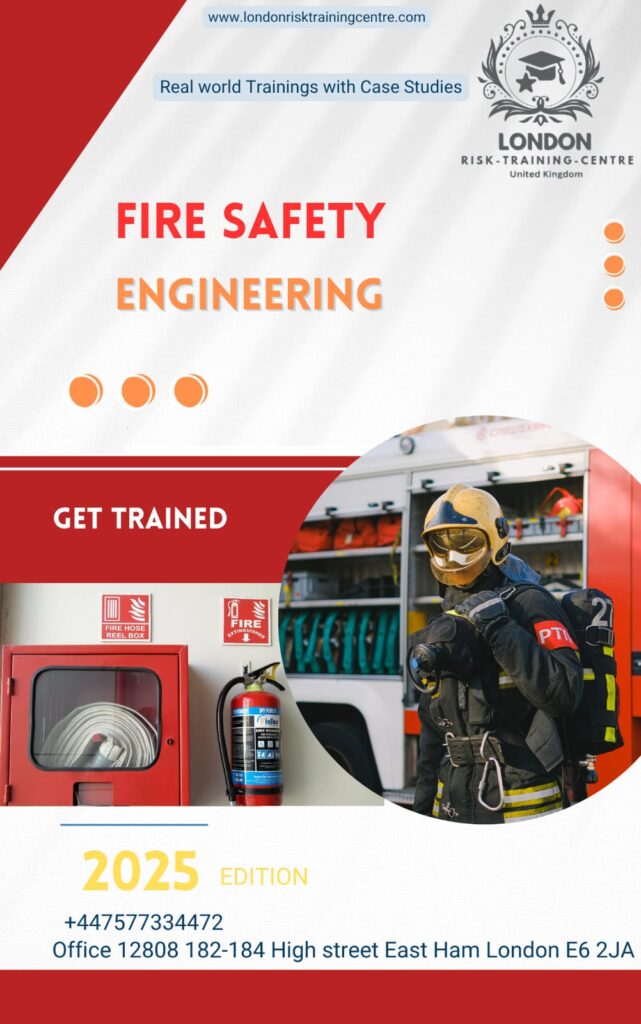
Fire Safety Engineering
This advanced training introduces engineering principles in fire protection for complex facilities. It covers fire dynamics, suppression systems, fire modeling, and passive and active safety strategies. Participants explore design standards, code compliance (NFPA, ISO), and industrial case studies. The course prepares engineers and safety professionals to develop fire-safe infrastructure. It is particularly relevant to oil and gas, power, and construction sectors. Graduates will be capable of designing and managing high-level fire safety systems.

Sustainable Resource Management
This course trains professionals to optimize the use of energy, water, and raw materials within operations. It covers sustainable procurement, resource efficiency audits, and circular economy principles. Participants learn to develop strategies that reduce waste and environmental impact. The course is valuable for industries aiming to lower costs and improve sustainability performance. It includes real-world case studies and resource monitoring tools. Graduates will be equipped to lead organizational sustainability initiatives effectively.
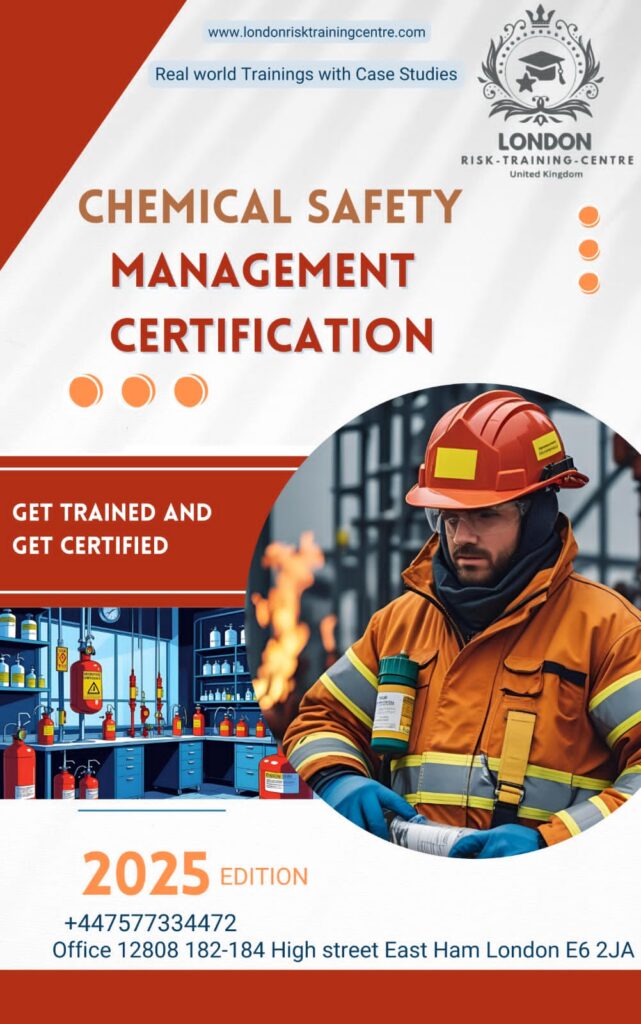
Advanced Chemical Safety Management
Designed for high-risk chemical handling environments, this course covers safe storage, labeling, spill response, and toxicology basics. It introduces process safety management systems, compatibility charts, and PPE application. Participants learn emergency planning, HAZOP analysis, and chemical inventory management. This training is ideal for safety managers, lab supervisors, and plant engineers. It ensures compliance with OSHA, REACH, and ISO chemical safety standards. Graduates will enhance site safety and minimize chemical-related incidents.

Radiological Safety officer
This course prepares participants to manage occupational radiation risks in medical, industrial, or research environments. It covers radiation types, shielding, dose monitoring, and regulatory compliance (IAEA, OSHA). Practical elements include contamination control, ALARA principles, and safety signage. Participants also study record-keeping and emergency procedures. This certification is essential for those overseeing radioactive sources and processes. Certified officers ensure safe operations and protect both personnel and the environment
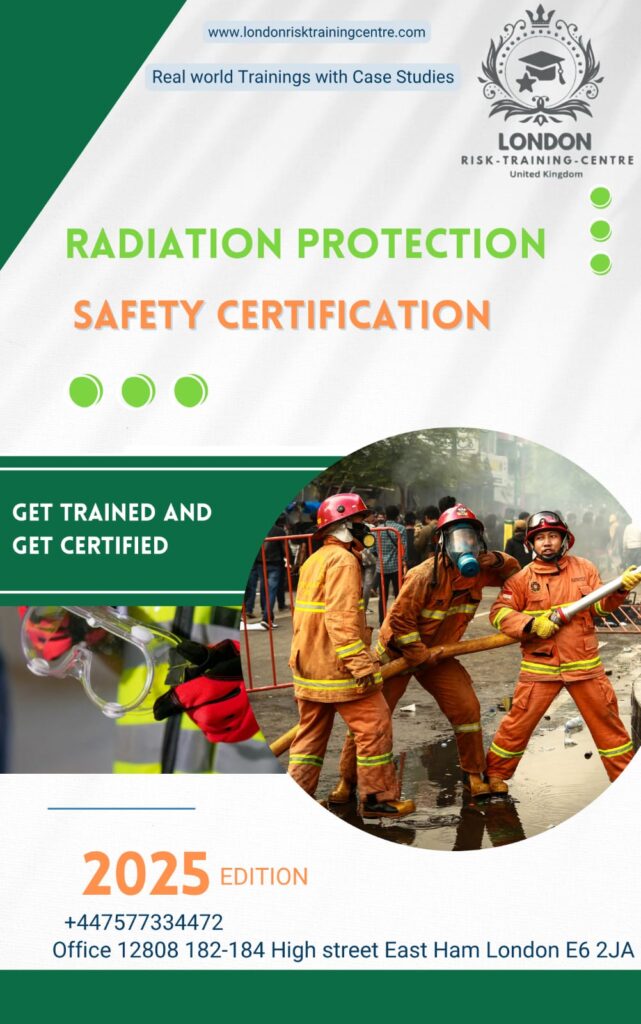
Radiation protection Safety
This training offers a focused approach to radiation safety, emphasizing protective measures, PPE usage, and exposure limits. It covers sources of ionizing and non-ionizing radiation and how to control them in the workplace. Participants learn contamination prevention and emergency response protocols. The course is suited to technical personnel in radiological environments. It builds awareness and competency for handling radiation-related tasks safely. Graduates will meet essential compliance and safety standards
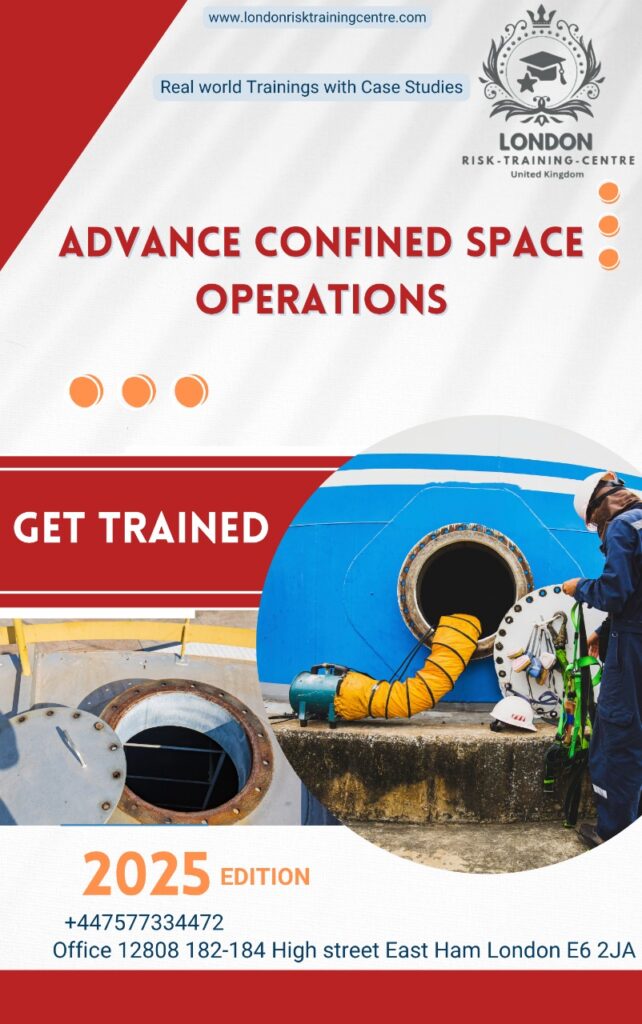
Advanced Confined Space Operations
This course provides high-level skills for entering, monitoring, and performing rescue operations in confined spaces. Topics include atmospheric testing, ventilation, advanced rescue gear, and casualty recovery. Participants learn multi-person entry coordination and complex retrieval strategies. It’s designed for industrial emergency teams and supervisors in hazardous settings. Emphasis is placed on compliance with permit-to-work systems and rescue planning. Graduates will be qualified to lead safe, efficient confined space operations.
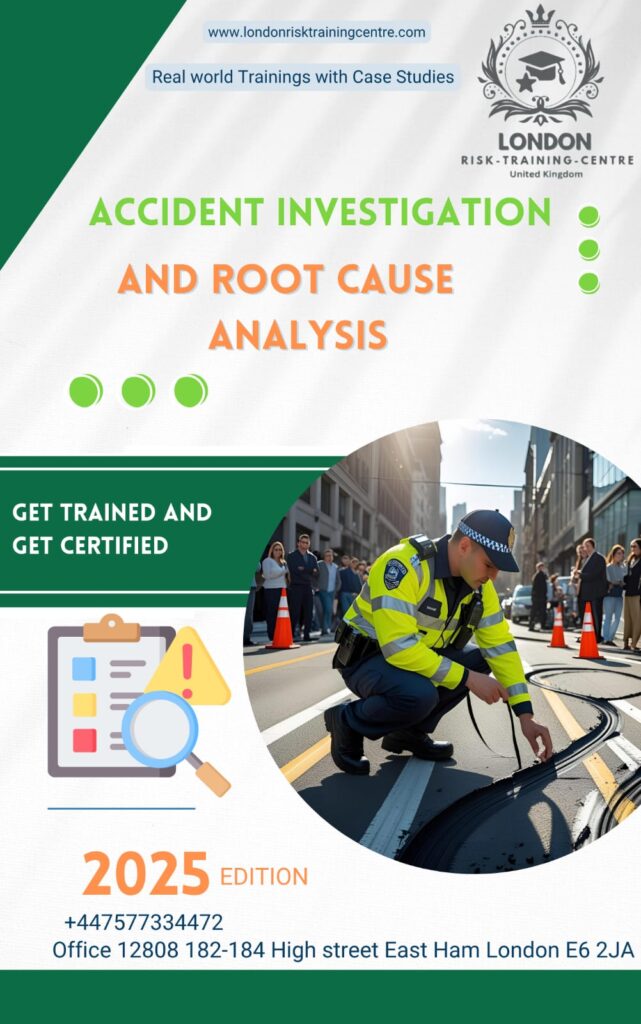
Accident Investigation And Root Cause Analysis
This advanced course equips participants to investigate serious incidents and identify underlying causes. It includes use of tools such as fault tree analysis, event mapping, and fishbone diagrams. Participants also learn how to develop corrective action plans and ensure legal documentation. The course helps safety professionals build a proactive prevention culture. Suitable for managers and HSE advisors, it ensures thorough, structured investigations. Graduates will enhance safety standards and reduce incident recurrence.
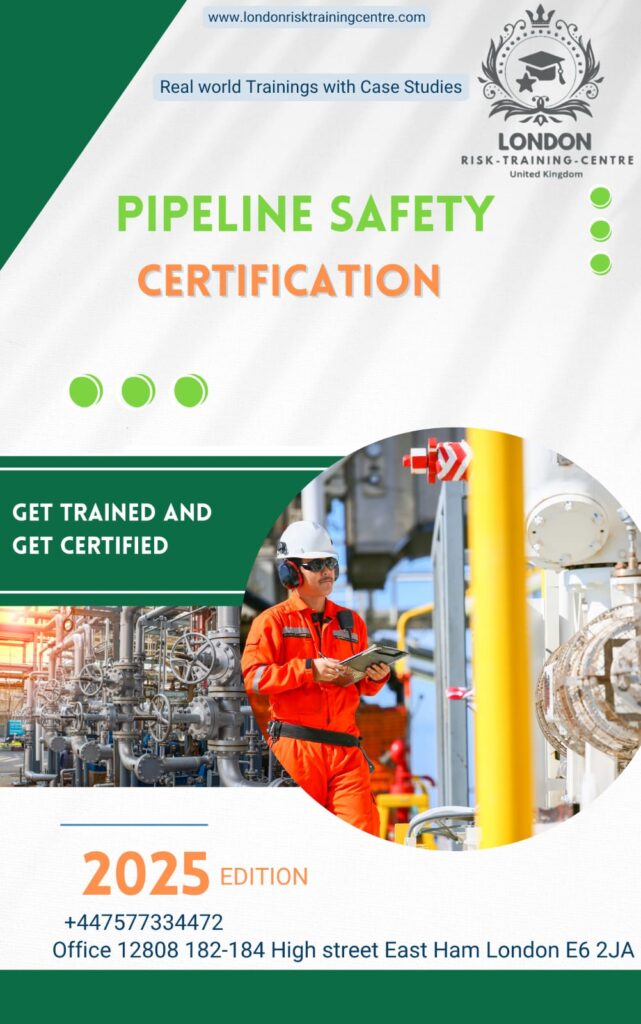
Pipeline Safety
This course provides in-depth knowledge of pipeline operations, integrity assessments, and safety controls. It covers corrosion protection, leak detection systems, pressure monitoring, and emergency shutdown procedures. Participants study national and international pipeline regulations (e.g., API, ASME). It is ideal for pipeline operators, safety officers, and engineers. The training strengthens infrastructure reliability and environmental protection. Certified professionals will be capable of managing pipeline safety programs effectively.
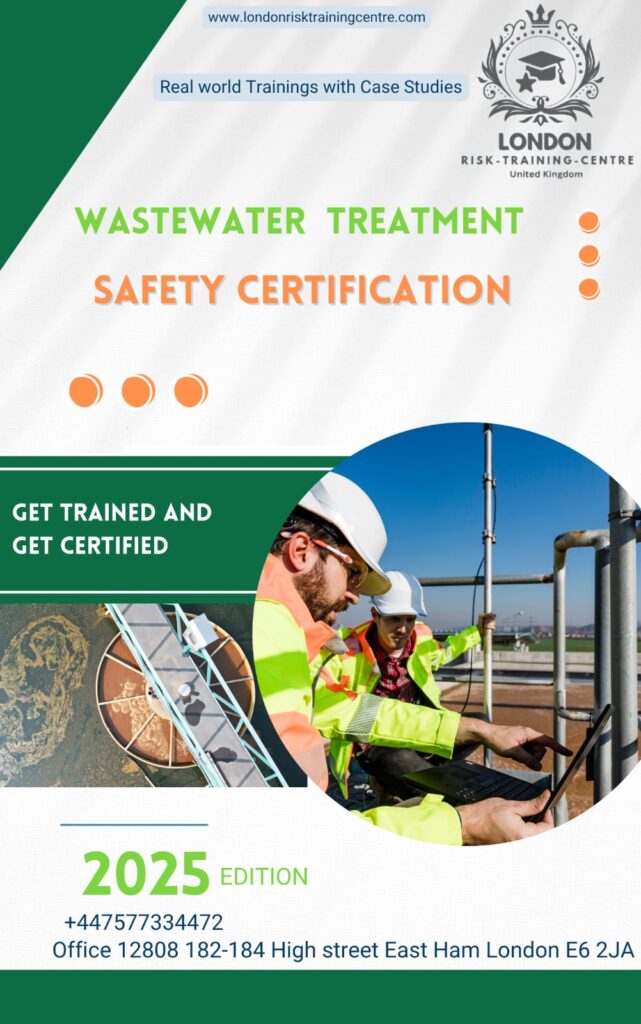
Waste water Treatment Safety
Focused on health and safety in wastewater treatment facilities, this course covers chemical handling, confined space entry, and biological hazard control. It includes risk assessments, PPE selection, and exposure prevention techniques. Participants also learn about spill response and compliance with safety regulations. Ideal for utility workers, operators, and environmental engineers. The course emphasizes preventive practices in treatment plant operations. Graduates will contribute to safe and sustainable water management.
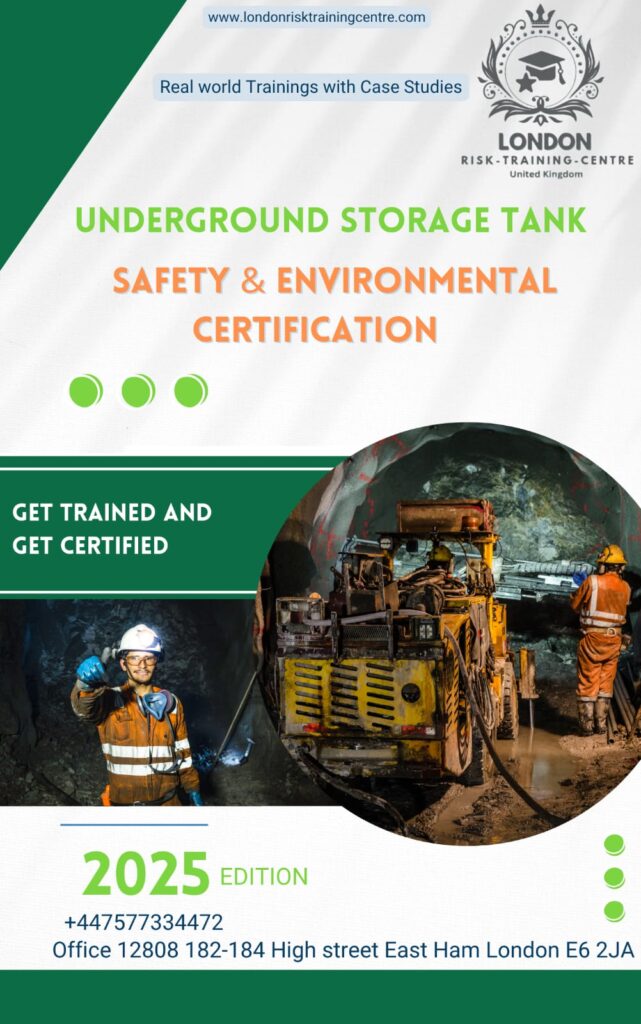
Underground Storage tank Safety
This course covers safe design, installation, and maintenance of underground storage tanks (USTs). Topics include leak detection, secondary containment, corrosion prevention, and regulatory compliance (EPA, ISO). Participants learn to manage fire risks, conduct inspections, and implement emergency plans. Ideal for professionals in fuel stations, refineries, and chemical industries. It promotes responsible storage practices and environmental protection. Certified individuals will ensure UST integrity and safety compliance.

Work Permit Issuer (WPI)
This course is designed for supervisors responsible for authorizing high-risk tasks under permit-to-work systems. It covers hazard identification, isolation procedures, and safe job planning. Participants learn permit documentation, expiry monitoring, and communication with contractors. It ensures work is performed safely and in compliance with site standards. Ideal for engineers, foremen, and HSE leads. Graduates will ensure structured, controlled execution of hazardous operations.

Work Permit Receiver (WPR)
Designed for frontline workers, this course trains them to interpret and comply with work permits. Participants learn to understand scope, precautions, and emergency instructions linked to each permit. It reinforces accountability and safe work behavior in hazardous environments. The course includes communication protocols and task-specific hazard controls. Essential for contractors, technicians, and maintenance staff. Certified permit receivers will operate within defined safety boundaries.

Forklifter Training
This training equips participants with knowledge of safe forklift operation, load management, and maneuvering in confined areas. It includes pre-use inspections, speed control, and tip-over prevention. Emphasis is placed on pedestrian safety, site traffic flow, and workplace awareness. The course adheres to OSHA and ISO forklift safety standards. Ideal for warehouse, logistics, and industrial operators. Graduates will operate forklifts safely and efficiently.

Crane Safety & Operations
This course trains crane operators and riggers in safe lifting practices, load chart reading, and crane setup. Participants learn about communication signals, ground conditions, and swing control. It emphasizes safety during complex lifts and heavy equipment movement. The training includes crane inspections and regulatory standards. Suitable for construction and industrial settings. Graduates will ensure safe, coordinated crane operations

Electrical Safety And Lockout/Tag-out Procedures
This course teaches electrical safety fundamentals and the Lockout/Tagout (LOTO) system for equipment isolation. Participants learn how to identify hazards, use PPE, and perform safe maintenance. It covers arc flash risks, electrical panels, and energy control procedures. Aligned with NFPA and OSHA standards, it targets electricians and plant technicians. The training reduces electrocution and maintenance risks. Graduates will ensure safe work on energized systems.
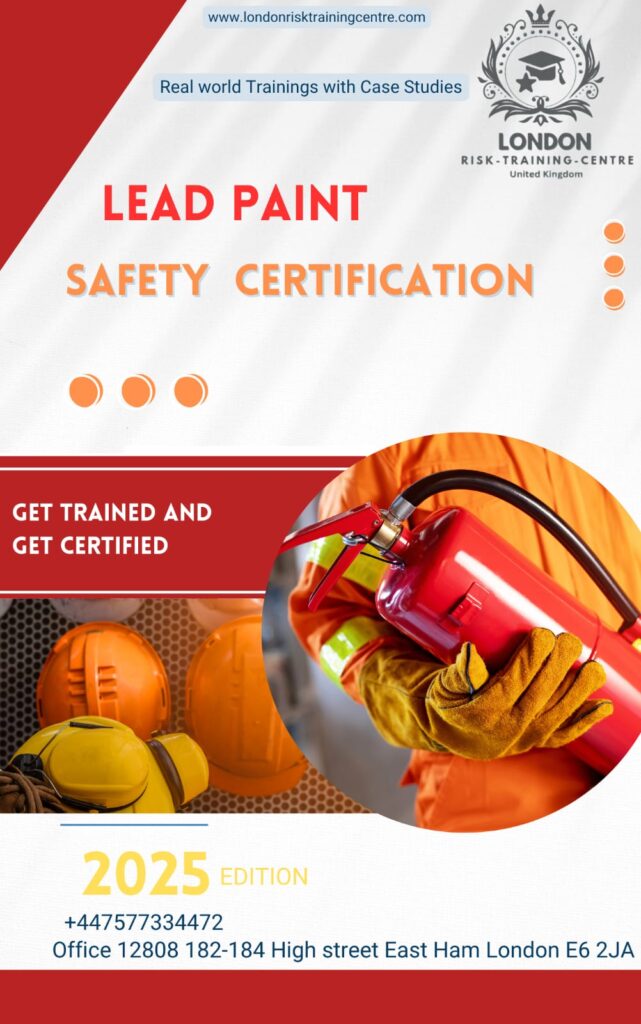
Lead Paint Safety
Participants learn safe practices for identifying, handling, and removing lead-based paint in buildings. The course covers exposure risks, personal protection, containment methods, and legal compliance. It’s essential for renovation, demolition, and repainting projects. Practical modules teach safe disposal and clean-up procedures. Ideal for contractors, painters, and facility managers. Certified individuals reduce health risks and ensure regulatory adherence.
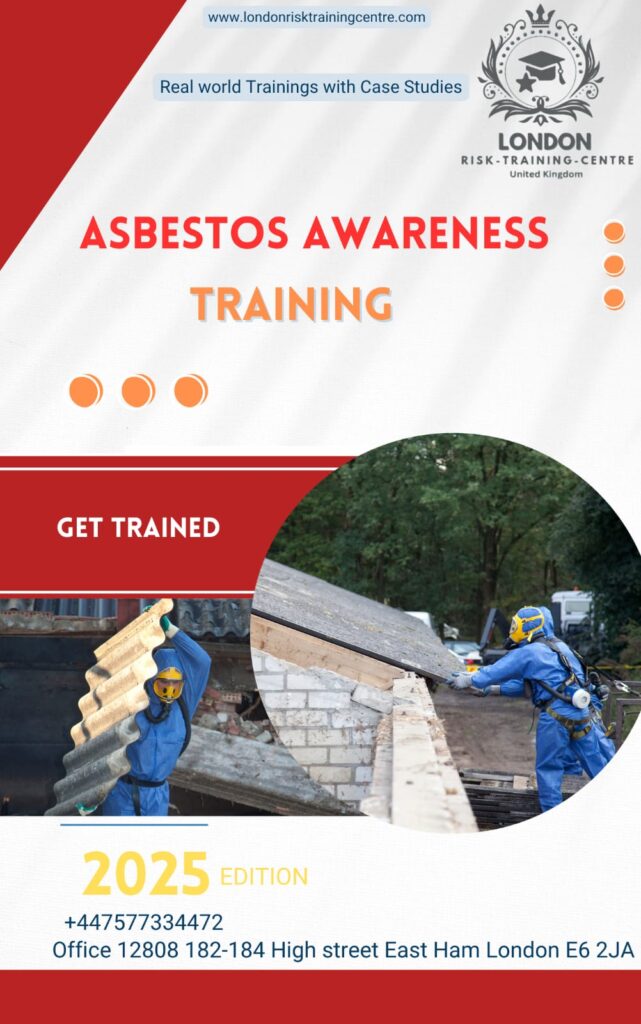
Asbestos Awareness Training
This awareness-level course introduces participants to asbestos risks, material identification, and exposure prevention. It includes health effects, emergency response, and regulatory requirements. Participants learn not to disturb suspected materials and to report findings. It’s mandatory for construction, demolition, and facility maintenance roles. The course builds essential hazard awareness. Graduates will recognize asbestos risks and act responsibly.

Accident Investigation & reporting
This course teaches accurate documentation and analysis of workplace incidents. Participants learn to collect evidence, write formal reports, and comply with legal reporting obligations. It supports accountability and transparency in incident handling. Ideal for supervisors and HSE officers. The training ensures thorough understanding of reporting protocols. Graduates contribute to improved safety performance and regulatory compliance.